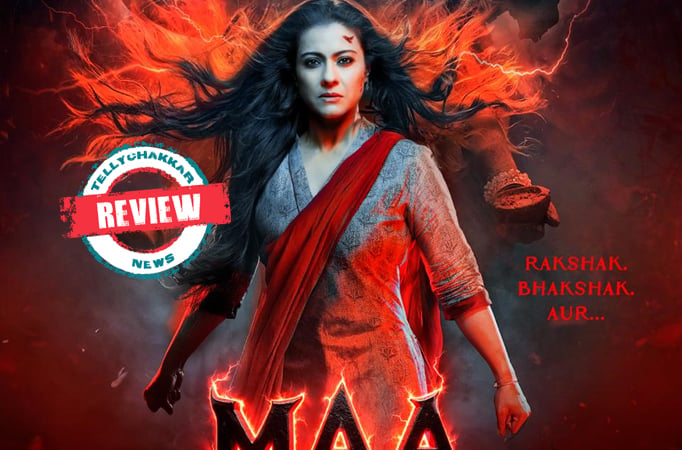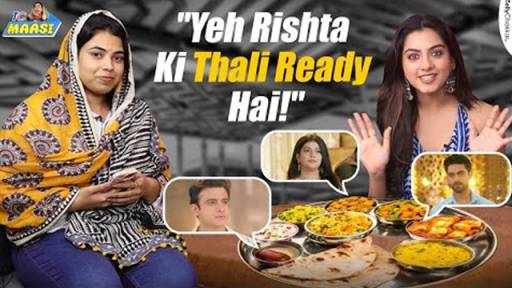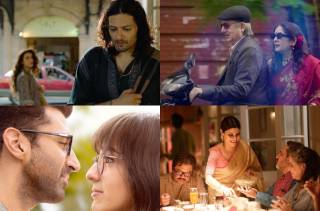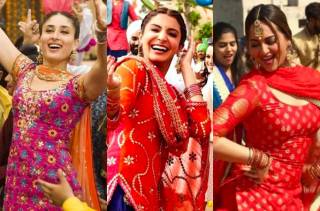
MUMBAI: Let’s face it — horror in Indian cinema is often the awkward kid in class. It tries too hard to be spooky, ends up being unintentionally funny, or gets buried in tired tropes of vengeful ghosts and creaky floorboards. But every once in a while, a film like Maa comes along and flips the whole genre on its head. Vishal Furia's latest is a slow-burn, myth-soaked horror drama that’s as emotionally grounded as it is viscerally terrifying — a film that doesn’t want to make you jump, but wants to haunt your bones.
Set in the fog-choked village of Chandrapur — the kind of place where even the trees look like they’re hiding secrets — Maa begins with loss, but very quickly veers into something darker, older, and much more feral. When Ambika (Kajol), a recently widowed woman, starts to feel something sinister stirring around her daughter, Shweta (a brilliant Kherin Sharma), she discovers that the family’s grief is just the tip of the horror iceberg. What follows is not just a mother fighting to protect her child — it’s a mythological reckoning.
What really sets Maa apart isn’t just the horror, but the why of the horror. The monster here — a Daitya born of ancient blood and older rage — isn’t some random ghoul with unfinished business. It’s the physical manifestation of what’s been buried, suppressed, and silenced over generations. Furia smartly uses Indian mythology, particularly the Kali-Raktabeej legend, not just as aesthetic dressing but as the actual narrative spine. Evil in Maa isn’t just out there — it’s systemic, inherited, and complicit in everyday silence.
Kajol, though? She is the storm. We've seen her in emotional roles before, but this is new territory. As Ambika, she sheds all the glamour and plays a mother slowly unraveling — and then reforging herself into something divine. Her eyes do more work than most actors manage with pages of dialogue. You can feel her exhaustion, her suspicion, her anger. When Ambika breaks, she breaks hard. When she rises, she ascends. This isn’t a scream-queen role — it’s a goddess-in-the-making arc, and Kajol owns every second of it.
Kherin Sharma is a revelation — gentle, grounded, never too precious. She brings warmth to a cold world and becomes the emotional anchor around which the chaos spins. Ronit Roy, as Joydev, the cryptic village sarpanch, is deliciously ambiguous. Every time he’s on screen, you’re either bracing for help or betrayal — and the film keeps you guessing. Indraneil Sengupta’s appearance is brief but striking, helping ground the story before the supernatural fully takes over.
The village of Chandrapur itself deserves a credit. The cinematography makes every corner feel ancient, cursed, and holy all at once. Flickering oil lamps, twisted banyan trees, temple ruins — it's like you’re walking through a place where time has folded in on itself. The visuals don’t scream horror; they whisper it. And sometimes, that’s worse. The use of VFX is restrained but effective — no cartoon monsters here. The Daitya, when it finally appears, feels earned, not tacked on.
But Maa isn’t just about mood. It builds toward a final act that is full-on mythological catharsis. If you’ve heard of the legend of Raktabeej — the demon who multiplied every time a drop of his blood hit the ground — then you’ll know where this is headed. But even if you don’t, the film lays it out in a way that hits with both narrative clarity and emotional power. The climax is stunning: not just a battle of good versus evil, but of memory versus myth, silence versus voice, grief versus godhood.
And then there’s the Kali Shakti song. It’s not just a banger — it’s a ritual. Somewhere between a war cry and a hymn, it turns the climax into a full-blown mythological opera. It’s the kind of sequence that gives you chills and goosebumps, and not just because of the visuals. It’s because it means something. It's the sound of a mother turning divine.
The supporting cast — Jitin Gulati, Gopal Singh, Yaaneea Bharadwaj, and Roopkatha Chakraborty — round out the world with believable, often haunting performances. No one feels like filler. Everyone is carrying something: guilt, fear, shame. The horror works not just because of the monster, but because of the people trying to ignore it.
Furia’s direction is patient and poetic. He doesn’t rush the scares. He builds dread, like a storyteller sitting at a bonfire, slowly drawing you in before blowing out the torch. The horror is psychological, symbolic, but also deeply rooted in social critique — a bold choice that mostly pays off. At 135 minutes, Maa takes its time, but never feels like it’s dragging. You’re too busy watching the edges of the frame, wondering what might crawl out.
Produced by Ajay Devgn and Jyoti Deshpande, and co-produced by Kumar Mangat Pathak, Maa is one of the most ambitious Indian horror films in recent memory. And more importantly — it works. It’s scary, yes, but also meditative. It's about how pain mutates when ignored, how myths aren't dead — just dormant — and how the fiercest protectors aren’t always wearing armor.
In the end, Maa isn’t just horror. It’s catharsis. It’s a scream wrapped in a prayer.
Go for the chills. Stay for the fire in Kajol’s eyes. And don’t be surprised if you walk out feeling a little more reverent — and a lot more rattled.
4/5 stars.

















Add new comment